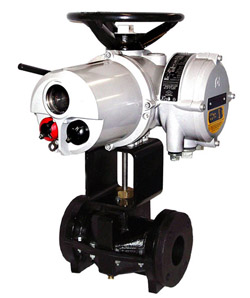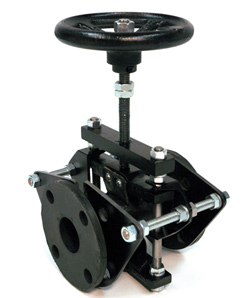Pinch valves are an ingenious and often underappreciated type of valve that offer unique advantages in a wide array of industries. They might not be as well-known as conventional valves, but their straightforward design and versatility make them highly effective for a range of fluid handling applications. In this post, we’ll explore what makes these valves special, their benefits, and the various industries in which they are utilised.
What is a Pinch Valve?
A pinch valve is a full-bore valve that controls the flow of media by physically pinching a flexible tube or sleeve. It consists of three main components:
- A flexible elastomer sleeve
- A valve body/housing
- End connections
The genius of the pinch valve lies in its simplicity: the flexible sleeve is the only part that comes in direct contact with the fluid. This reduces wear and the need for multiple moving parts, offering an ideal solution for managing slurries, abrasive materials, or fluids that are sensitive to contamination.
How Pinch Valves Work
The operation of pinch valves is straightforward and can be achieved through several mechanisms:
- Pneumatic operation: Compressed air or gas is used to squeeze the sleeve, effectively pinching off the flow.
- Mechanical operation: A handwheel or mechanical actuator exerts pressure on the sleeve to modulate flow.
- Electric operation: Solenoid-operated pinch valves use electromagnetic force to compress the sleeve and control the flow.
When open, pinch valves offer a full, unobstructed flow path, making them suitable for applications that require minimal pressure drop and turbulence. To close, the sleeve is compressed from the outside, creating a tight seal without internal components like discs or seats that could impede flow or wear down over time.
Advantages of Pinch Valves
Pinch valves offer several key benefits over traditional valve designs, making them a preferred choice for many critical applications:

- Low Maintenance
With fewer moving parts and the absence of internal metal components, pinch valves are exceptionally durable and require less frequent maintenance. - Contamination-Free Operation
Because the fluid only contacts the elastomer sleeve, there’s minimal risk of contamination or material degradation, making pinch valves ideal for hygienic or sterile environments. - Ability to Handle Abrasive Materials
The flexible sleeve is designed to withstand impact from particles, making it excellent for slurries or applications involving abrasive media. - Full Bore Design
When open, the pinch valve provides a completely unobstructed flow path, eliminating pressure drop or flow disturbances common in other valve types. - Fast Opening and Closing
Pinch valves are known for their quick response times, making them suitable for rapid cycling applications. - Ease of Cleaning
With a straightforward design, pinch valves are easy to clean and maintain, reducing downtime and simplifying compliance in regulated industries.
Applications Across Industries
Pinch valves have been adopted across a diverse set of industries due to their unique properties and adaptability. Common applications include:

- Pharmaceutical and Biotech
Pinch valves are a go-to choice for sterile fluid handling in biopharmaceutical production and single-use technologies, where the risk of cross-contamination must be minimised. - Food and Beverage
Their sanitary design makes pinch valves suitable for food and beverage processing, as well as packaging applications. - Water Treatment
Pinch valves excel in regulating the flow of various fluids and slurries, ensuring smooth operation in municipal and industrial water treatment plants. - Mining and Cement
Pinch valves can endure harsh conditions and handle abrasive materials like ore slurries, sand, and cement, making them invaluable for mining operations. - Chemical Processing
Their resistance to corrosive substances makes pinch valves ideal for controlling aggressive chemicals and solvents.
The Future of Pinch Valves
As industries continue to prioritise efficiency, cleanliness, and automation, pinch valves are poised to see increased adoption. Innovations in materials science and advancements in control systems are expanding their capabilities, allowing them to handle a broader range of applications and more extreme conditions.

For example, the development of new elastomer materials enables pinch valves to withstand higher pressures and temperatures, while intelligent valve actuators offer precise control in complex automated systems. These advancements make pinch valves an increasingly attractive option for process designers and engineers looking to optimise their fluid handling systems.
Pinch valves may not be as universally recognized as their conventional counterparts, but their unique design and versatile performance make them an excellent choice for many fluid handling challenges. As more engineers and process designers discover their benefits, we can expect to see pinch valves playing an increasingly important role in various industries—from pharmaceuticals to water treatment and beyond.
With their continued evolution, pinch valves are not only addressing current industry needs but are also setting new standards for what’s possible in modern fluid control systems. John Valves has partnered with Onyx Valves to deliver pinch valves to the Australian market. If you have the need for pinch valves for your project our experts are here to help.

